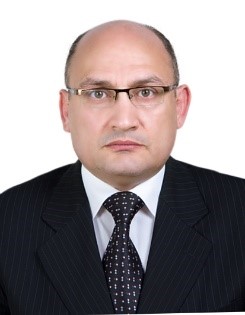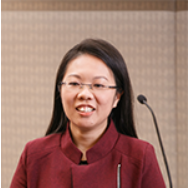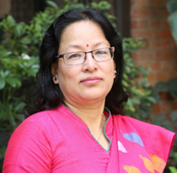

Prof. Rui Wang
Xi'an Jiaotong-Liverpool University. China
Rui Wang is a Suzhou Industrial Park International Leading Academic Talent and a Publishing Mentor for the Urban Affairs Association. He has been included in Stanford's List of World's Top 2% Scientists (career-long impact) since 2022. The List has also ranked him among the 16 most impactful urban & regional planning academics in Greater China since 2022. Professor Wang specializes in the public policy analysis for efficient, sustainable and inclusive urban development. His research appears in multiple disciplinary areas and has been covered in the Atlantic, Harvard Business Review, Los Angeles Times and New York Times. Professor Wang gave talks at the China Finance 40 Forum, Hong Kong Monetary Authority, Los Angeles World Affairs Council, RAND, World Bank, and numerous academic conferences and institutions. He is an editorial board member of journals such as the Journal of Urban Affairs, Transport Research Part D, and has also consulted for Beijing Municipal Institute of City Planning and Design, US Department of Housing and Urban Development, and the World Bank.
Speech Title: Building Complete Streets in China: An Assessment of Local Urban Street Design Guidelines
Abstract: Recognizing the negative consequences of auto-oriented urban transportation, Chinese cities began adopting the Complete Streets principles through developing local Urban Street Design Guidelines (USDGs) in 2016. The literature has seen very limited policy studies on urban transportation design, and none could be found on street design policies in China. This study is the first systematic policy evaluation of the pioneering effort in ten large Chinese cities by analyzing local USDG documents and interviewing key practitioner stakeholders. Despite strong policy aspirations, local USDGs face significant implementation challenges, lack consideration of disadvantaged communities, and need clarify modal priorities in diverse contexts. Targeted improvements such as context-specific and enforceable goals, clear implementation procedures with interagency coordination and accountability mechanisms, as well as integrated vertical equity considerations and measures, could contribute to more effective and sustainable urban street building and management in China’s cities.

Prof. Akmal Abdelfatah
the American University of Sharjah, UAE
Dr. Abdelfatah has a Ph.D. degree in transportation engineering from the University of Texas at Austin, USA in 1999. He has a B.Sc. and an M.Sc., in Civil Engineering from Cairo University in 1988 and 1992, respectively.
He has been serving as an Assistant Professor, Associate Professor and Professor of Civil Engineering at the American University of Sharjah, UAE, since 1999. His main research interests include Intelligent Transportation Systems (ITS) applications, traffic operations, transportation planning, AI applications in transportation engineering, transportation electrification, and transit systems. He is a co-author of 1 book “Intelligent Transportation Systems: Past, Present and Future Directions”. He is also a co-author of several journal and conference papers, and he is an editorial board member of some international journals. He taught a large number of courses in the BS in Civil Engineering, and Master level courses in Civil Engineering, Engineering Systems Management, and Urban Planning. He also taught PhD level courses in the PhD program in Engineering Systems Management. He supervised several MS and PhD students in the area of transportation engineering.
He worked as a transportation planning and traffic engineering consultant/researcher on many projects in the Middle East and the United States. He currently serves as an advisor to the government of Sharjah on the development of the Sharjah Master Transportation Plan 2040.
Speech Title: Utilizing Dynamic Traffic Assignment in Smart Cities
Abstract: The implementation of Intelligent Transportation Systems (ITS) is a crucial element of Smart Cities. The ITS applications have been investigated for many years. Several cities in around the world started implementing certain ITS technologies; including variable message signs (VMS), automated toll collection, and dynamic signal control. This presentation highlights the Dynamic Traffic Assignment (DTA) as one of the key elements of ITS. The implementation of DTA in Smart Cities depends on the use of Vehicle to Vehicle (V2V), Vehicle to Infrastructure (V2I), and Vehicle to everything (V2X) communication systems. This presentation provides a summary of the Dynamic Traffic Assignment (DTA) concepts along with some example formulations and methodologies for solutions. Furthermore, it outlines several current and prospective uses that could employ DTA as part of ITS in Smart Cities. The DTA can provide descriptive or normative information to the drivers. The descriptive information provides the state of the network at any time to the drivers, who can benefit from the provided information to reduce their travel times. On the other hand, the normative information provides routing information based on User Equilibrium (UE) or System Optimal (SO) algorithms. Such information can improve the overall network performance even when the information is provided to about 25% of the vehicles in the network. In addition, several numerical results are shown to emphasize the beneficial effects of ITS on the performance of the transportation network.

Prof. Rita Yi Man Li
Hong Kong Shue Yan University, HK China
I graduated from HKU (global subject ranking 14 in QS) and now serve as a full-time professor at Hong Kong Shue Yan University. I am the founder and director of the Sustainable Real Estate Research Center. My primary research interests lie in SDGs, construction safety and health, housing economics, real estate economics, and applied AI. I am listed as Stanford University World’s Top 2% Scientist across 22 scientific fields and 176 sub-fields of all scientists in the recent four years. I have 8266 citations in Google Scholar and 4976 in Scopus. I act as a journal editorial board member and SI editor for SSCI/SCIE journals, an author of 9 books and over 200 articles over the past eight years. I have quite an extensive academic network with research collaborators from Australia, the UK, Italy, the US, Cyprus, France, Canada, Thailand, Malaysia, Turkey, Bangladesh, Saudi Arabia, mainland China, etc. I am also an invited keynote speaker for over 30 conferences. Over the years, I have won many local and international awards. I act as a PI and co-I for many academic research grants, including highly competitive grants from Research Grant Council and Public Policy Research Grant in Hong Kong, ARC Linkage Grant in Australia, Ministry of Science and Higher Education of the Republic of Kazakhstan and other grants obtained from quasi-public institutions and government departments (over 10 million).
Speech Title: How do the Australians perceive AI technologies for urban planning and development?
AbstractAI is a powerful technology that is increasing in popularity and has applications in various sectors. Although many of these applications are closely related to urban usage, there is limited understanding of AI applications in urban planning and development. There is a research gap in how the public perceives AI technologies and their application areas in urban planning and development. This study advances our understanding on the relationship between AI technologies and their significant applications in urban planning and development in different Australian states via sentiment and content analyses of location-based 11,236 X(Twitter) messages. The findings show that: (a) digital transformation, innovation, and sustainability are the most prevalent AI use in urban planning and development; (b) drones, automation, robotics, and big data are the most widespread AI use in urban planning and development, and; (c) achieving the digital transformation and sustainability of cities through the use of big data, automation and robotics are the most popular discussion topics. Among all Australia states, QLD and TAS have the highest satisfaction (92% positive). While most states and territories have positive sentiments, NT records the least satisfaction with 53% of neutral sentiments, as well as low interest in sharing their views on Twitter.

Prof. Sangeeta Singh
Centre for Urban Planning Studies, Institute of Engineering, Nepal
Sangeeta Singh is a Professor in Urban planning and have been teaching for more than 27 years at the Institute of Engineering. She is the Director of Centre for Urban Planning Studies at the Institute of Engineering. She is the member of the board of trustees of Gandaki University and Madan Bhandari University of Science and Technology. She is the Chair of Wepower Nepal National Chapter, a South Asia Regional Network of women professionals in energy. Is a member of the advisory board of GEM Foundation, Pavia, Italy. She was the Member of National Planning Commission in the Government of Nepal, in 2023 and 2024 and was involved in the preparation of the 16th National plan and the 3rd VNR National report.
She has led and contributed to numerous high-impact research projects in ecological urban planning, disaster risk reduction, urban resilience, sustainable development, and transdisciplinary education. she served as Team Leader/Principal Investigator for the National Report Review of Habitat III under Nepal’s Ministry of Urban Development, coordinated the Baliyo Ghar, Baliyo Sahar Program on disaster-resilient housing, and led T-Learn, a study on transdisciplinary climate action in collaboration with McGill University. She also contributed to the EnPe Project with NTNU, focusing on energy sustainability and gender mainstreaming, and coordinated the SAMAJ Project, integrating SDGs into engineering education. She was the team lead for the GCRF Kathmandu Hub (Tomorrow’s Cities), a global urban disaster risk research initiative, and led Equitable Resilience, a study on political capabilities for inclusive resilience.
Speech Title: The climate resilient and sustainable urban development: Assessment of the New Town Development Initiative in Nepal
Abstract: This study examines Nepal’s New Town Development Initiative as a strategic response to rapid urbanization, climate risks, and regional disparities. Focused on planned urban centers along the Mid-Hill Highway, the initiative aims to balance economic growth with climate resilience by integrating principles of sustainable urban development and disaster risk reduction. Through qualitative case studies of Khurkot, Baireni Galchi, and Dumre, the research evaluates the project’s alignment with Nepal’s national policies, the Sustainable Development Goals (SDGs), and global frameworks like the New Urban Agenda. Findings highlight opportunities for decentralized urbanization and green infrastructure, alongside challenges such as institutional fragmentation, financial constraints, and unplanned migration. There is a need for robust governance, inclusive planning, and innovative financing to ensure these new cities serve as models of equitable and climate-resilient development. By bridging policy and practice, the study contributes to discourse on sustainable urbanization in fragile ecosystems, offering recommendations for Nepal and similar contexts globally.